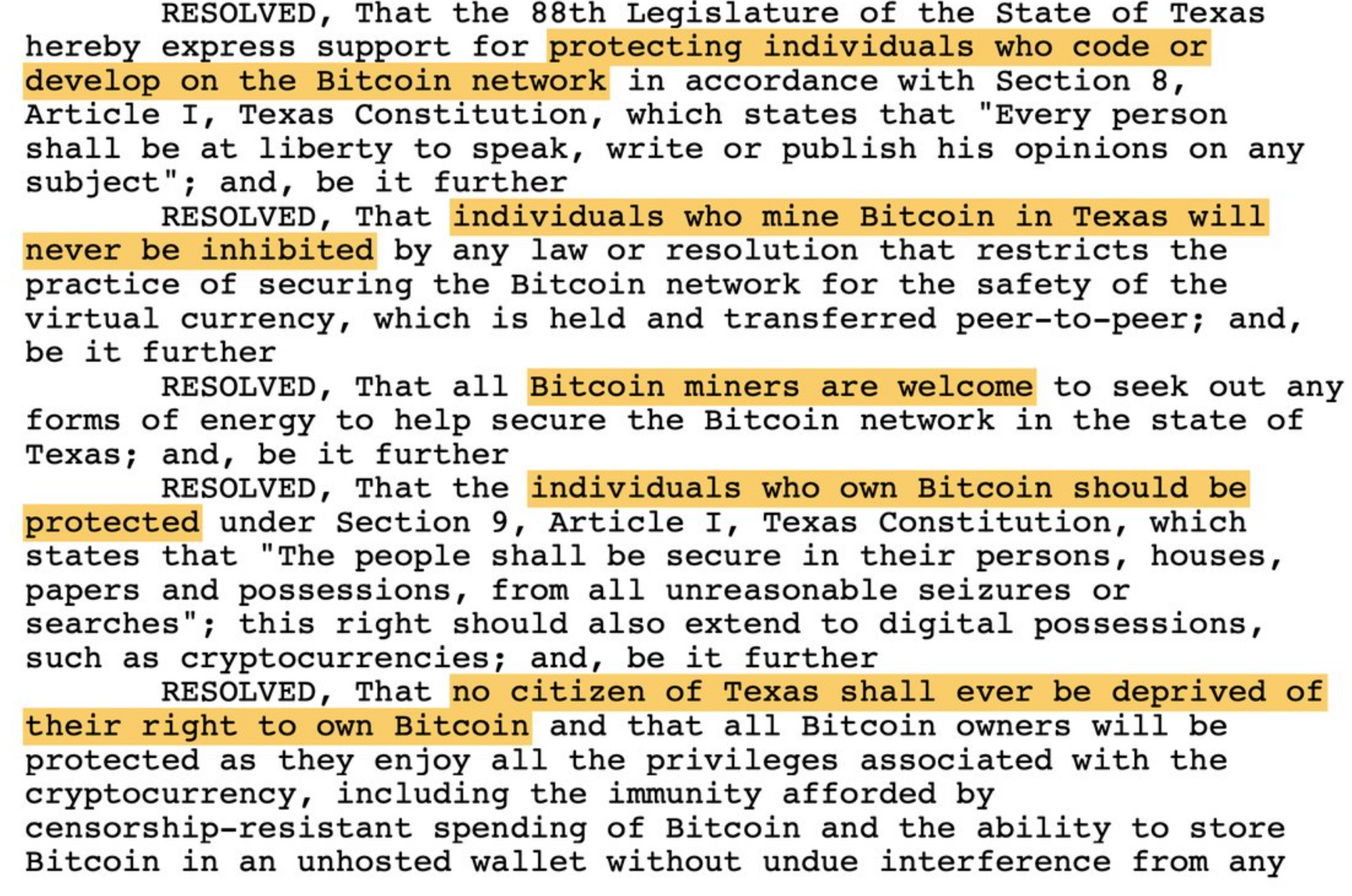Texas Takes a Stand for the Bitcoin Circular Economy

The recent Economic Report of the President dismissed Bitcoin and Proof of Work while promoting a possible CBDC leaving many enthusiasts of bitcoin feeling the report is burgeoning an authoritarian form of rule through digital currency. As bitcoin continues to make headlines and draw attention from around the world, one state is taking matters into its own hands. The Texas House of Representatives recently introduced a bill that could have far-reaching effects on the Bitcoin economy in the United States. If passed, this bill could set Texas up to become the nucleus of Bitcoin development in the country and lay the groundwork for protecting the rights of individual bitcoin ownership nationwide.
The Bill's Provisions
The bill, known as House Concurrent Resolution 89, was sponsored by Representative Cody Harris and sought to protect the rights of individual Bitcoin owners. Natalie Smolenski, Senior Fellow at Bitcoin Policy Institute, and Former FDIC Capital Markets Regulator Jason Brett co-authored the resolution aiming to boost the local Texas economy by highlighting the quick migration of hash rate from China into the United States during the 2021 ban of bitcoin in the world's most populous country. Additionally, any individual who mines bitcoin in Texas will be inhibited by any law restricting the practice of securing the bitcoin network, as the bill states in great detail.

The Potential Impact
If this bill passes, it could significantly impact both individuals and businesses in Texas. For individuals, this would mean they can legally own Bitcoin without fear of legal repercussions or ownership issues. For businesses, it means they can accept BTC payments with confidence that their sovereign rights will remain unaffected. Finally, it would allow entrepreneurs to develop blockchain technology and mine bitcoin within a supportive environment where resources are available to help them succeed. The bill is advocating anyone who owns Bitcoin is protected under Section 9, Article I of the Texas Constitution, which states, "The people shall be secure in their persons, houses, papers, and possessions, from all unreasonable seizures or searches." This right, the bill says, should also extend to digital possessions, such as cryptocurrencies.
Conclusion:
The potential implications of this bill are huge and could revolutionize the way people use and interact with cryptocurrencies in Texas—and potentially beyond its borders as well. If passed into law, H.C.R. No. 89 would provide individuals with greater financial freedom while giving businesses more incentives than ever before to adopt bitcoin as a payment option. This could be a game-changer for how we think about digital currency in the future—and only time will tell if this bill has what it takes to pass through both Houses and become law in Texas.
